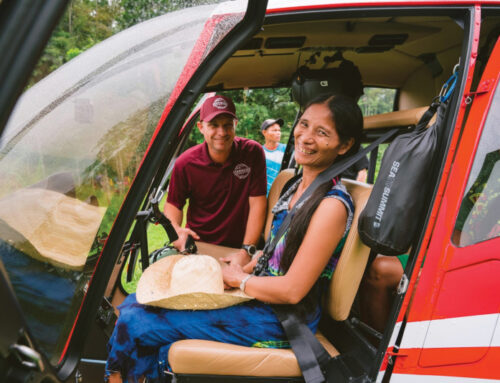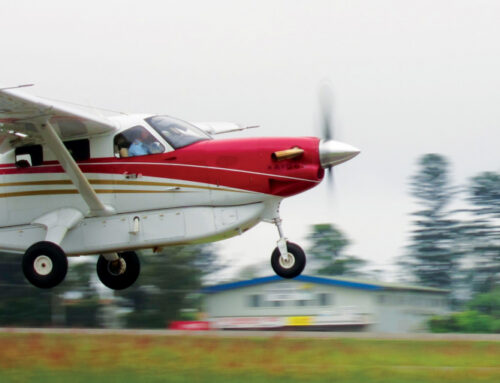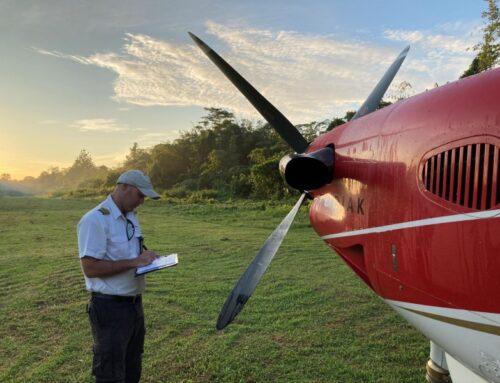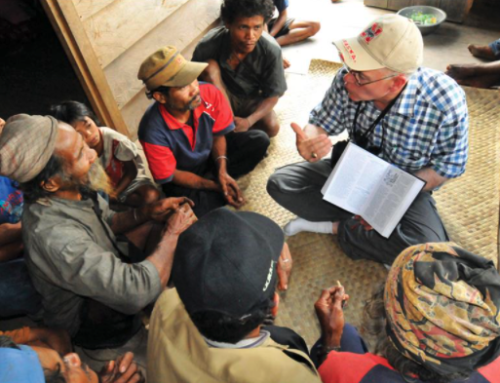Three hundred Taliabos worked to rebuild the airstrip in their village.
Lining the sides of the airstrip, the Taliabos were there to welcome the first landing with passengers of the Kodiak plane in their village.
They had worked hard for five years. Even the children joined in to dig in deep, remove trees and do whatever else it took to smooth out the surface for the much-needed airstrip.
Try to picture 300 people working together. Missionary Darryl Palmer said, “They had fun working together, singing, working in pairs like little machines to gather dirt and move it to the centre of the airstrip.”
The two faithful Taliabo men who coordinated this airstrip project were able to be on board for the practice takeoffs and landings. Neither had ever been on an airplane before.
Nathan Tag and Darren Spence are the pilots who are privileged to provide this air service. Darryl and Kyla Palmer are the translators, literacy teachers and disciple-makers who will save hours and hours of travel time as a result of the new airstrip.
These pilots have sat and listened to the incredible stories of the dangerous trips in the small boats that are like canoes with a 40-horsepower motor, including the time the engine quit and the missionaries were carried away for hours before someone came along to tow them in.
Boat trips to the village have been known to take 50 hours. Three and a half days on rough seas and winding roads compared to an hour and a half in this airplane will allow Darryl and Kyla to arrive refreshed and ready to serve instead of needing days to recover from the exhausting trip.
The plane carries passengers and supplies, even bulky things like solar panels and refrigerators. When you live out in a remote village in order to translate the Bible and train church leaders, having these conveniences can make life so much easier.
Not having to spend so much time on food preparation without a refrigerator, or hooking up and keeping batteries going can save countless more hours directly affecting the speed with which people are reached with the gospel.
Part of the job of being missionary pilots in this process included the pilots getting the opportunity to take one of those dangerous ocean journeys. In order to check out the airstrip progress they landed on an island near where the Taliabo people live. Then they took one of those “boats” over the sea. After landing they took motorbikes through the slippery mud and up and down the inclines. It was just barely mentioned that there was a flat tire on one motorbike and everyone fell off at least once, besides rough seas causing Nathan to fall into the ocean.
The most recent flight was also historic, bringing the tribal leaders out to a regional conference of various tribes and tongues to worship God together in one place. These leaders were so very grateful that they didn’t have to take that long trip on boats, muddy roads and buses.
It’s evident that God is truly using this plane for its intended purpose.
You can help make such flights possible. Without your help, missionaries pay $250 an hour for flights that serve them. Will you help sponsor flights?






